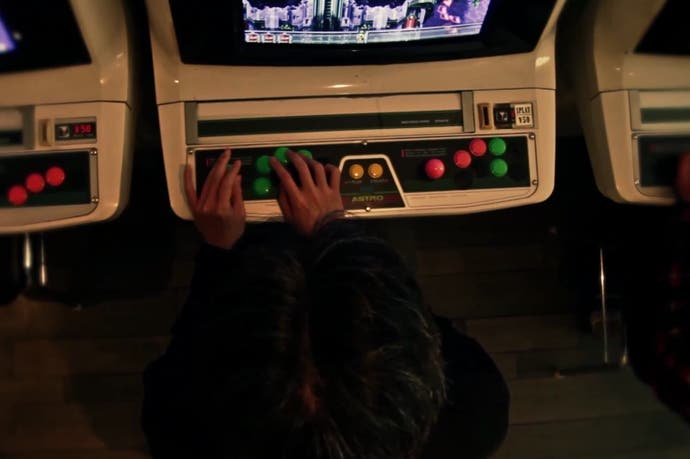100 Yen: The Japanese Arcade Experience review
This indie documentary film is an affectionate tribute that sadly short changes its subject.
There's something overwhelming about setting foot in one of Tokyo's video game arcades: first the wall of noise hits you, followed by the cool stale air and then the blasts of colour and movement that sit beyond row upon row of players sitting perfectly still. Japanese arcades have weathered the industry's many storms, and even though that's left them looking a little dog-eared, they continue to be busy and exciting destinations.
As arcade numbers dwindle in the West, it's a culture that's fast becoming exclusive to Japan. 100 Yen: The Japanese Gaming Experience, an IndieGoGo-funded documentary directed by Canadian expat Brad Crawford, looks to celebrate that culture, examining the history of Japanese arcades, asking how they've survived and interviewing the dedicated players who call these strange places home.
100 Yen does a good job of bringing these arcades alive, its aggressively tilt-shifted cinematography capturing a little of the disorientation that goes hand-in-hand with a jetlagged stroll through late-night Shibuya. It does a much less impressive job, however, of going beyond that initial dazzle and awe, or of exploring arcade gaming's history or wider cultural relevance. 100 Yen is a bit of a mess, never sure of its purpose or place, and never managing to do much more than throw a series of pretty pictures in your direction.
It doesn't help that Crawford never manages to find a thread to help guide us through this colourful world, instead choosing to scruffily explore several loosely defined areas of arcade gaming. A fleeting examination of Taito's birth and its creation of the Space Invaders phenomenon lurches, by way of Brian Ashcraft's woozy recollection of '70s gaming in Japan, to the hardcore who frequent boutique arcade Ebi-sen in a matter of minutes, with little rhyme or reason. Individual games are never explored, and neither are individual players: the only revelation we get is that it takes time and dedication to get a high score in a Japanese arcade.
And with that, shooting games are passed over, the focus twitching to the fighting scene. Daigo Umehara, one of Street Fighter's most celebrated players, looms large here, casting a shadow upon the competitors so eager to end his reign - as well as the filmmakers, clearly enamoured with their big catch. Umehara is famously reticent, and here he reveals little, not that there's any real urge to learn anything in particular. Fighting games are social and take practice to master, we're told repeatedly, the whole genre passed by with nothing more than a fistful of inanities and montages of quick wrists.
There are shimmers of something more substantial in 100 Yen, though, and glimpses of the magic that defines arcades, as well as some of the melancholy that encroaches as their relevance wanes. Hiroshi Kawaguchi, the Sega sound designer responsible for scoring OutRun, feels like a man stranded by time as he introduces the rhythm action genre he works in today, but it's here where 100 Yen finally gets a pulse and discovers a spark of humanity in the pros of the Dance Dance Revolution scene. The choreography and acrobatics of high level, virtuoso DDR play make the perfect subject for the film's stylish camerawork, and the thrill of seeing a great game played brilliantly clicks into place.

It's a fleeting moment, though, and Crawford soon tires of the Japanese arcades altogether, ending with a detour to the US's Evo tournament and a visit to a Las Vegas arcade-themed nightclub that only makes sense once you see the owner emerge in the final credits in an executive producer role. In searching for what makes Japanese arcades special, it's sadly fitting that 100 Yen winds up five and a half thousand miles away from its subject.
It's unfortunate, too, because at times 100 Yen creates an affectionate window on the scene, its enthusiasm and sprawl as overwhelming as stepping inside a Shibuya arcade yourself. Good intentions aren't enough, though, and ultimately this feels like a wasted opportunity. Seth Gordon's The King of Kong revealed the value in tracking down the human stories in video game arcades, Jessica Oreck's Beetle Queen Conquers Tokyo showed how to extract poetry from Japan's eccentric cultural phenomena and Wim Wenders' Tokyo-ga proved there's worth in a thoughtful outsider's diary. Brad Crawford's 100 Yen doesn't attempt any of that: instead, it feels like a poor port of an arcade hit, a three-minute wonder that's been stretched well beyond breaking point.


